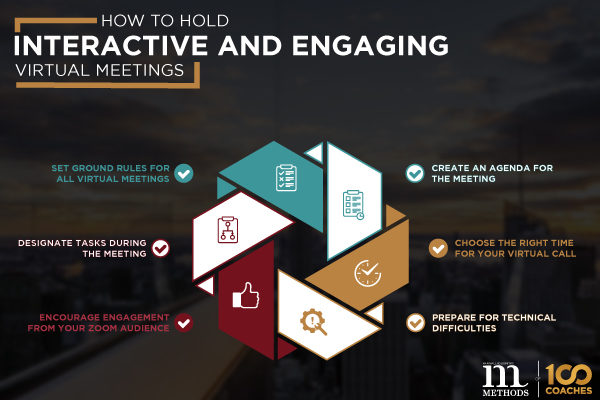
One enduring cliche in the world of leadership is that it’s “lonely at the top.” While there is some truth to this sentiment, a more modern viewpoint is taking hold. Leaders are beginning to realize that success in leadership isn’t found in isolation, but through building meaningful relationships and cultivating collaboration within their teams. To truly excel in today’s interconnected business environment, leaders are rethinking their development not only as individuals but as part of a broader ecosystem. Leadership today is no longer just about personal skill-building; it’s about fostering strong, dynamic teams and responding to an increasingly complex world.
This shift has forced organizations to rethink traditional approaches to leadership training. While executive coaching, large-scale seminars, and video-based learning modules remain popular, they are often too narrow in scope. In the face of the rapid pace of change in the workplace, leadership development requires a more innovative and context-driven approach that better equips leaders to handle real-world challenges.
The Limitations of Conventional Leadership Training
Conventional leadership development programs have typically followed a “one-size-fits-all” model. These programs, while valuable for foundational skill-building, often focus too much on theory at the expense of real-world application. They frequently isolate leaders from the organizational context in which they operate, failing to account for the unique challenges of their specific environment.
Take, for example, a manager attending a seminar on conflict resolution. While the seminar may offer useful frameworks, it can be difficult to apply these lessons when faced with the complex interpersonal dynamics of their own team. The challenge lies in translating theoretical knowledge into practical action.
This is where traditional training often falls short. It tends to emphasize individual leadership skills, neglecting the relational and contextual aspects of leadership that are critical for success today. Modern leadership requires not just technical know-how, but also emotional intelligence, agility, and the ability to navigate ambiguity and change. Leaders need to be prepared to build trust, inspire innovation, and manage crises in real-time, all while fostering a culture that encourages collaboration and continuous growth.
These gaps in traditional training methods leave many leaders ill-equipped to face the fast-paced, interconnected challenges of today’s business world. Even when they excel in theory, they can struggle to apply their knowledge in dynamic, unpredictable situations. This disconnect between training and practice underscores the need for a more holistic, context-driven approach to leadership development.
The Modern Approach: Contextual Learning and Social Platforms
In order to address these limitations, organizations are increasingly turning to modern leadership development methods that focus on contextual learning. Rather than isolating leadership skills from the environment in which they will be applied, this approach integrates learning directly into the leader’s daily experiences and challenges. Contextual learning emphasizes real-world application, allowing leaders to practice their skills in authentic, high-pressure situations.
For example, instead of learning conflict resolution techniques in a classroom setting, a leader might be guided through a real-world conflict within their team. By applying the lessons they’ve learned to a live situation, they gain both the experience and the confidence to handle similar challenges in the future.
Digital tools and social learning platforms are ideal for this kind of contextual learning. They allow leaders to connect with their peers, share experiences, and learn from one another in real-time. Platforms like Methods of 100 Coaches offer a wealth of resources, from video lessons to interactive modules, that help leaders engage with material that is relevant to their specific circumstances.
A key element of this modern approach is the emphasis on continuous learning. Leadership isn’t a skill that can be mastered in a single seminar or training session. It requires ongoing development and a growth mindset. By encouraging leaders to adopt a learning mentality where each new experience becomes a learning opportunity, organizations can better equip them to handle the complexities of today’s workplace.
Some of the greatest minds in business have long promoted the idea that learning is never finished. Leaders who embrace this philosophy are better prepared to adapt to change and continuously improve their leadership skills. Digital tools make it easier for leaders to access bite-sized, micro-learning modules that fit into their busy schedules, ensuring that learning remains a constant process rather than a one-time event.
Real-World Leadership Skills and the Power of Social Learning
Another advantage of modern leadership development is the focus on fostering authentic connections and real-world advice. Learning leadership in isolation from others can only take leaders so far. By building networks with other leaders, they can learn from each other’s successes and mistakes. This collaborative, social approach to leadership development not only fosters better understanding of the material but also helps leaders feel less isolated.
The rise of social learning platforms allows for this kind of knowledge-sharing to happen seamlessly. Leaders can access forums, discussion boards, and collaborative spaces where they can engage with peers, ask questions, and offer advice. In this way, learning becomes a two-way street, allowing leaders to benefit from the collective wisdom of their community.
Moreover, the flexibility of these platforms makes them particularly suited to today’s fast-paced work environment. Leaders can engage in learning activities at their own pace, on their own schedule, and from any location. This flexibility ensures that leadership development remains accessible even for those with the busiest of schedules.
The Future of Leadership Development: Adaptive, Relational, and Real-Time
The evolving nature of work has fundamentally changed what it means to be a leader. It’s no longer enough to be technically competent or have a high IQ. Today’s leaders need to be emotionally intelligent (have a high “EQ”), adaptable, and relational. They need to be able to inspire their teams, navigate ambiguity, and drive innovation—all while staying grounded in their organization’s mission and values.
Leadership development programs that embrace these realities are better positioned to prepare leaders for success in the modern workplace. By moving beyond traditional, theory-heavy methods and adopting more practical, context-driven approaches, organizations can ensure their leaders are prepared to tackle real-world challenges.
How Methods of 100 Coaches Leads the Way
Methods of 100 Coaches is at the forefront of this shift in leadership development. Our platform combines the best of both worlds: the flexibility of online learning with the depth and richness of real-world insights from top thought leaders across various industries. By offering leaders access to a diverse range of experts and interactive learning opportunities, we ensure they are prepared to face the complexities of today’s business environment.
Through Methods of 100 Coaches, leaders can develop the skills they need to succeed in an interconnected, fast-paced world. Our content is designed to be engaging, relevant, and practical, offering leaders the tools they need to drive success in their organizations.
By joining Methods of 100 Coaches, you’re not just signing up for a course—you’re joining a community of leaders committed to continuous learning and growth. Redefine your leadership journey today and be prepared to tackle the challenges of tomorrow.
Sign up for Methods of 100 Coaches here: Methods of 100 Coaches.
Sources:
Fast Company: Why We’re Failing New Managers
Harvard Business Review: Leadership Development in the Hybrid Era
Harvard Business Review: The Future of Leadership Development
The Economist: AI in Education
Curran Daly: Agile Leadership Development
Learn2: Why Leadership Development Programs Don’t Work
Photo by Riccardo Annandale on Unsplash





